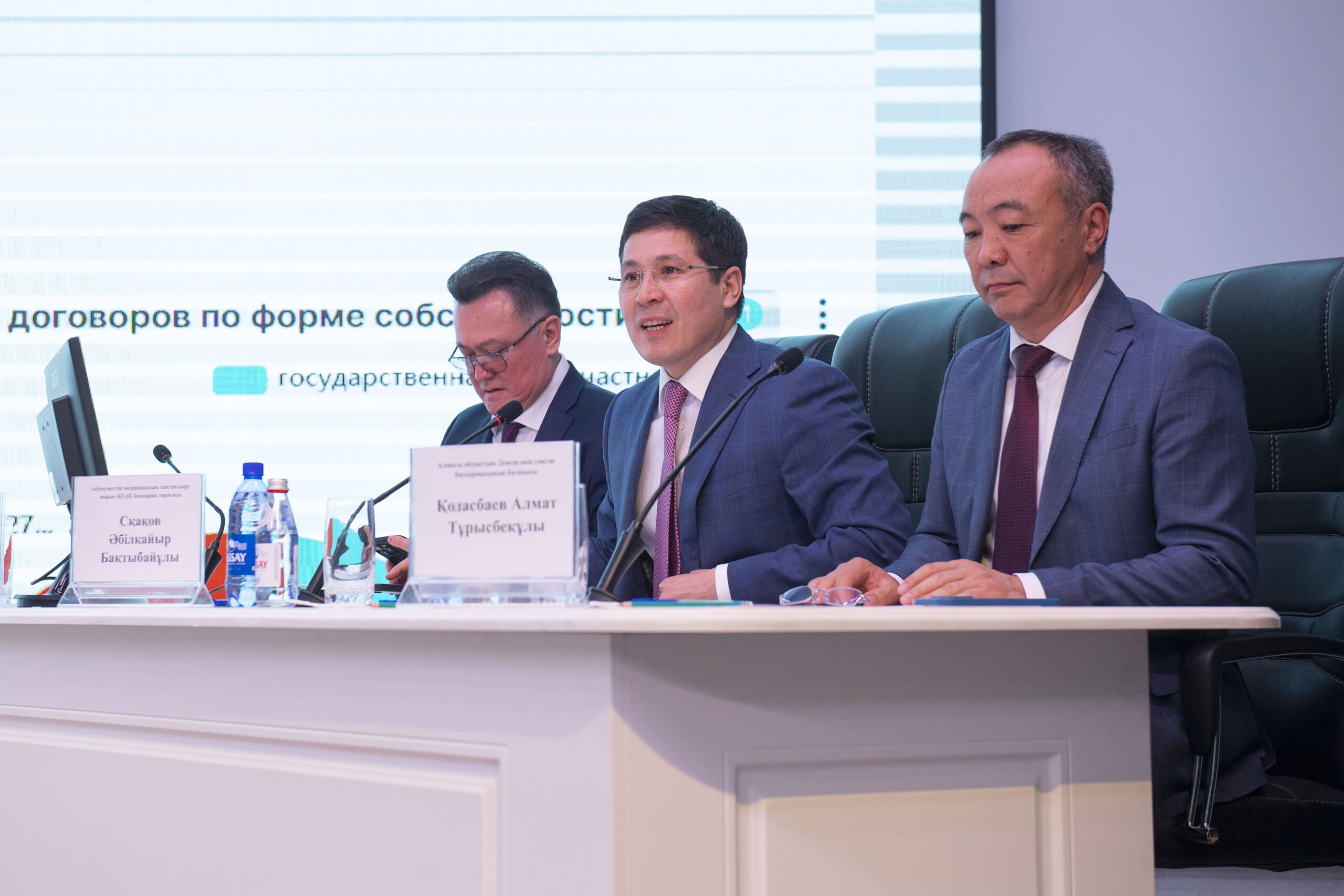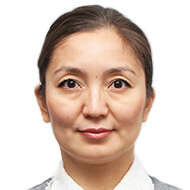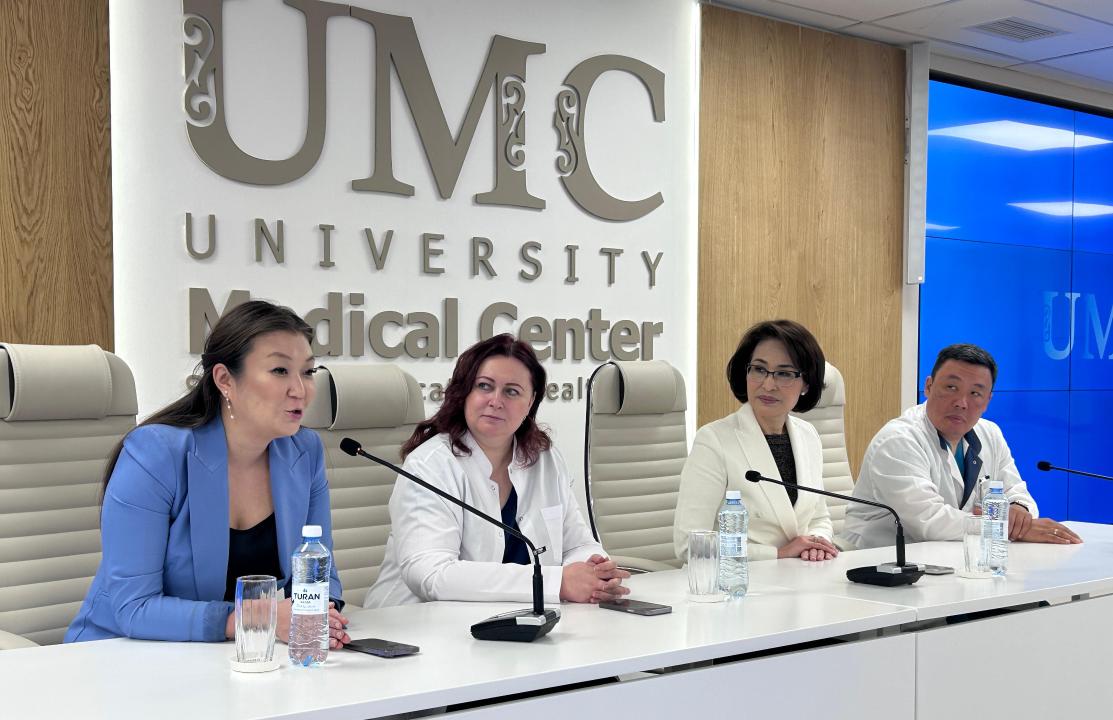Social Health Insurance Fund CEO Mr. Skakov visited Kazakhstan’s Almaty region to showcase the new Situational-Analytical Center, a data hub offering over 1,000 dashboards and 500+ indicators on health financing and social health protection. Set to host the P4H Eurasian Regional Hub in September 2024, the center impressed hospital CEOs with its analytics capabilities. Discussions also addressed fiscal challenges faced by healthcare providers this year.
Abylkair Skakov, Chairman of the Social Health Insurance Fund (FSSMS), continues his regional working visits, meeting with chief physicians and inspecting district-level medical institutions in the Almaty Region. In Konayev, he met with the medical community to present the Situation-Analytical Center (SAC), established in March 2024 for big data analysis. As reported by Social Health Insurance Fund (msqory.kz) this system collects data from 18 databases and creates over 1,000 dashboards with 500 key indicators, including population coverage, healthcare funding, service delivery statistics, quality monitoring, and public complaints.
Chief physicians expressed interest in the SAC’s “Regional Portrait” module, developed on Superset, which offers insights across 11 categories. Ongarsyn Bayuzakov, Head of Talgar Central District Hospital, proposed a pilot collaboration to integrate the hospital’s own situational center with FSSMS funding data. Abylkair Skakov supported the idea, suggesting integration with the Fund’s 1C program for financial transparency.
Key concerns were raised about low tariffs, budget constraints, and funding methodologies. Nurzhamal Aliyarova, Director of ID Senim R Medical Center, highlighted that her clinic received only a fraction of requested funds for outpatient care in 2022, leading to financial strain. She also noted low tariffs under OSMS and the burden of exceeding service quotas. Skakov pledged to review these issues and urged regional branches to analyze specific cases.
At the Karasay Interdistrict Clinical Hospital, Skakov noted progress despite challenges like insufficient buildings, aging medical transport, and underfunding. The hospital is expanding with new profiles such as neurosurgery, pulmonology, endocrinology, and pediatric neurosurgery, and has introduced advanced surgeries on the brain, heart, and vessels.
In a private polyclinic, LLP “Alat S” in Kaskelen, Skakov commended full staffing and adherence to workload standards. He emphasized the importance of effective management and patient-centric processes.
Abylkair Skakov also met with healthcare veterans and experts in Almaty to discuss the future of the healthcare system. He presented the FSSMS Strategic Development Plan for 2024–2025, outlining measures to ensure OSMS sustainability, expand population coverage, improve quality monitoring, and enhance digitalization and transparency.
Experts highlighted the challenges faced by public hospitals handling complex cases and suggested reforms in funding allocation to reflect workload realities. Skakov stressed the need for collaboration:
“We are shifting from accusatory rhetoric to fostering partnerships aimed at improving healthcare processes.”
Skakov revealed that 334.7 billion tenge has been allocated for healthcare in Almaty in 2024, including 159.6 billion tenge under OSMS and 175.1 billion tenge under GOBMP. The Fund increased prepayments from 30% to 70% of the annual budget to ensure uninterrupted services.
The SAC’s dashboards are streamlining decision-making and promoting financial transparency. Skakov emphasized the importance of ensuring patients receive diagnostic and consultative services locally to reduce reliance on external providers.
Skakov concluded with a visit to City Clinical Hospital No. 5, focusing on internal management, patient support services, and feedback systems. He tasked FSSMS central office staff with assessing conditions at “Dostar Med,” a multidisciplinary medical center.
“Private clinics in OSMS must recognize their responsibility to patients by improving service quality and accessibility. Public satisfaction remains the ultimate measure of healthcare performance,” he noted.
Currently, 215 medical organizations, including 124 private entities, collaborate with FSSMS in Almaty. Skakov plans to visit other regions soon to address healthcare challenges and foster improvements.





